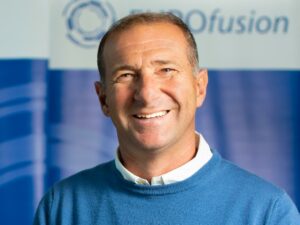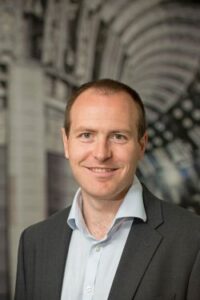Ambrogio Fasoli and Ian Chapman are fusioneers with a great deal of experience in the field. Heading the Swiss Plasma Center (SPC) at EPFL and UK Atomic Energy Authority (UKAEA) respectively, they and their researchers have participated in the European fusion community for decades. However, recent political changes in Switzerland and the UK mean that both countries are – at least for the moment – not part of the Euratom treaty which governs access to EUROfusion.
An unfortunate situation! Now what?

Fasoli: Luckily a workaround is already in place. Although SPC and UKAEA aren’t full members with voting rights right now, we were able to become Associate Partners – observers – via the German EUROfusion member: the Max Planck Institute for Plasma Physics (IPP).
Practically speaking, this means that we are now directly funded by our national governments instead of via EUROfusion. The important thing is that our people can still participate in all the research programmes and have access to each others’ facilities.
Chapman: Throughout the uncertainty during Brexit, the collegiate approach of all EUROfusion members towards the UK has remained steadfast. The fact that IPP have enabled this workaround to keep us in the programme shows this collaborative approach shining through. We are very thankful to our German colleagues for going the extra mile to keep the UK in the team, so that the UK can do the scope of work intended in the EUROfusion programme.
And what does the way forward look like?
Chapman: The UK government have made it clear that they intend to associate to Euratom. Whilst this has been approved by both the EU Council and UK parliament, the protocol has not yet been fully adopted. As soon as that happens, the UKAEA will become a beneficiary of EUROfusion once more. I’m sure all parties are keen this happens as soon as possible.
Fasoli: The current situation is likely to continue for some time for SPC, although there are already Swiss efforts to rejoin the European Research Initiative. It’s not ideal, because for instance now we do not have a vote in EUROfusion’s decision making body. But our people can still contribute to EUROfusion’s research activities. The work can go on.
Why is EUROfusion membership so important?

Fasoli: EUROfusion lets us contribute at the very highest level to realising the European Roadmap to Fusion Energy. As a single country, we could never build up the necessary research facilities. But by working together, we have access to a focused community with tremendous capabilities. It’s like the difference between playing soccer in a local cup or joining together to play in the Champion’s League!
Chapman: The EUROfusion programme is the largest and most complete fusion R&D programme in the world – so of course it offers all participants many benefits. David Attenborough opened COP26 recently by saying that “if by working apart we are a force powerful enough to destabilise our planet, then surely, by working together, we are powerful enough to save it”. I firmly believe in this sentiment. Fusion is such an exciting sector to work in precisely because of the determined and cogent collaboration that links us.
Fasoli: EUROfusion brings access to so many resources. I’m not only talking about the continent’s fusion devices where our researchers can go to perform experiments – or the other way around, where European researchers come to use our facilities. EUROfusion also means access to top software, modelling and most importantly brainware.
Being part of this community means we get to work with world-class researchers and for them to work with ours. By working as a community in an integrated programme, we can advance further than any one of us individually.
